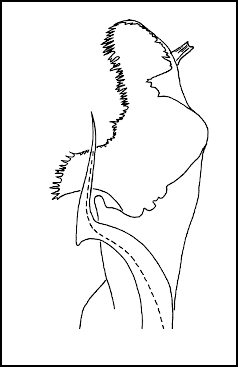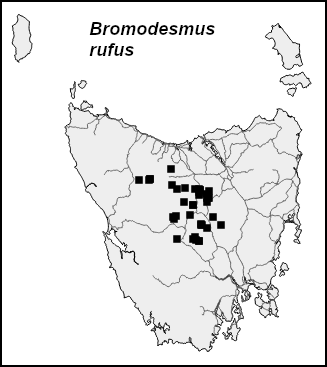Polydesmida: Dalodesmidae: Bromodesmus
Note: Atalopharetra and Bromodesmus are sister genera with gonopods on which the solenomere (the structure with the "delivery end" of the sperm canal) is protected by a broad hood. Both genera also have species with a powerfully smelling defensive secretion containing p-cresol (bromos is Greek for "stink"). The two genera divide up Tasmania rather neatly between them, as shown in this map:
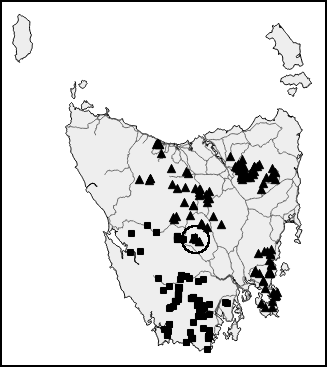
Combined localities for Atalopharetra species (squares) and Bromodesmus species (triangles), including Atalopharetra females and juveniles not identified to species. A. johnsi and B. rufus come very close to meeting between Tarraleah and Victoria Valley in central Tasmania (circle).
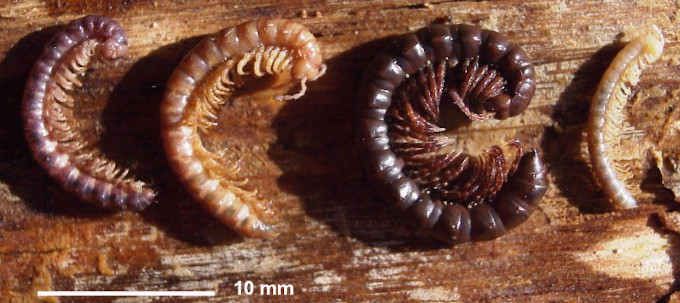
Left to right: Bromodesmus militaris, B. catrionae, B. rufus, B. riparius
All four H+20 Bromodesmus species burrow deep in the soil, but B. rufus can sometimes be found in or under woody litter. Bromodesmus rufus is also a true subalpine-alpine millipede, with a known elevation range to ca 1300 m. Bromodesmus riparius can be abundant in rich organic soil close to shaded streams in the Dial Range near Penguin, but seems to be rare elsewhere.
The Bromodesmus defensive secretion can stain specimens a red-brown colour after long storage in alcohol, as seen with B. catrionae and B. militaris in the image above. Fresh specimens of these two species are pale brown to gray-brown with dark-brown banding around each ring.
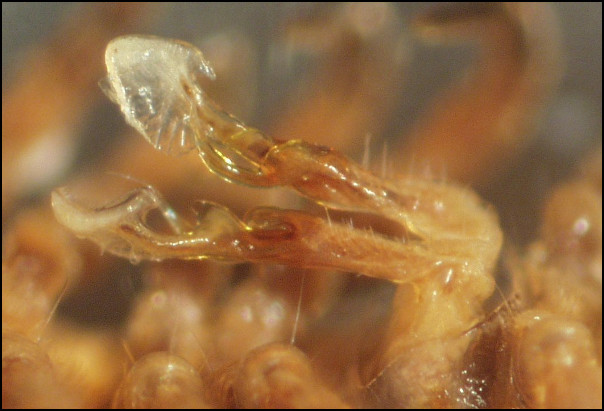
Extended gonopods in a B. riparius male
Note in the maps that there is almost no overlap among the four Bromodesmus species ranges. This will help with identification, but be sure to check the gonopods carefully. Each drawing below is a medial view of the tip of the right gonopod.
Bromodesmus catrionae Mesibov, 2004
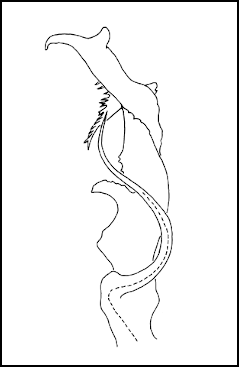
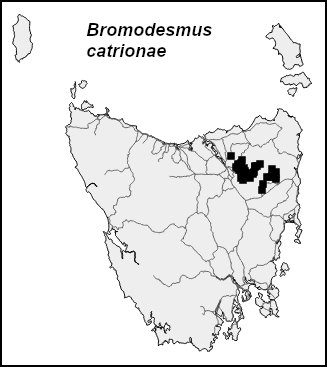
Bromodesmus militaris Mesibov, 2004
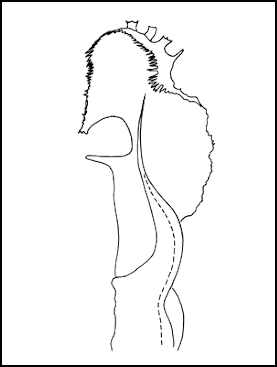
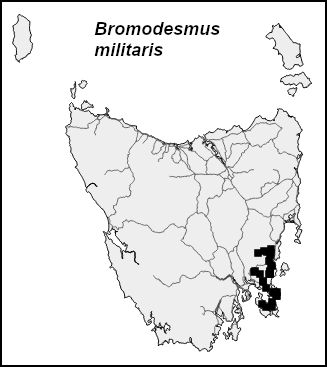
Bromodesmus riparius Mesibov, 2004
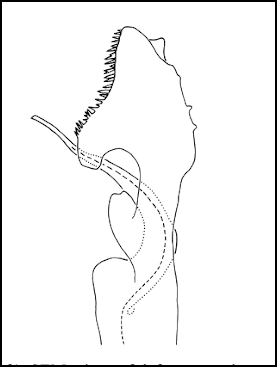
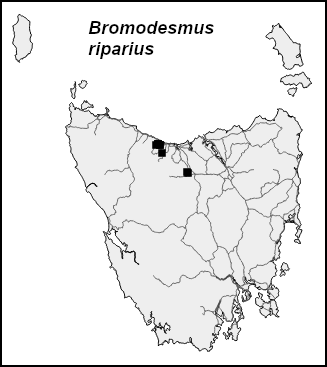
Bromodesmus rufus Mesibov, 2004
